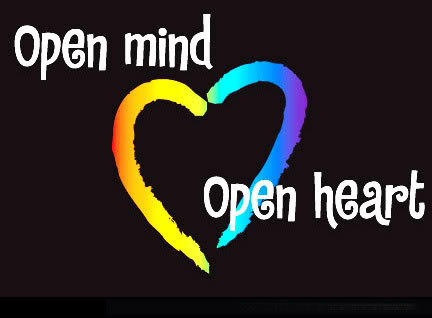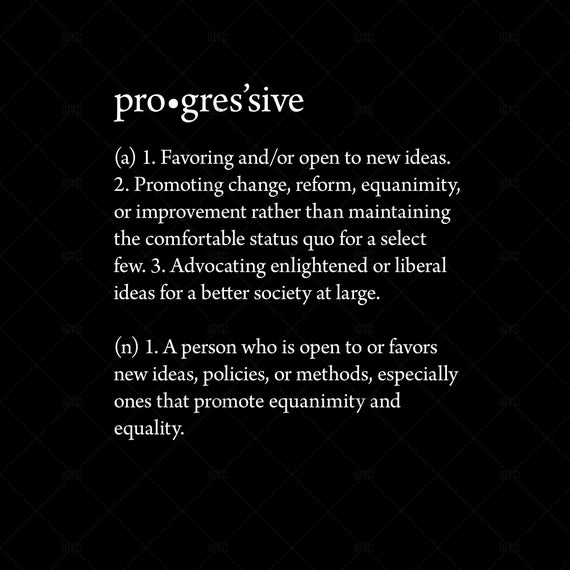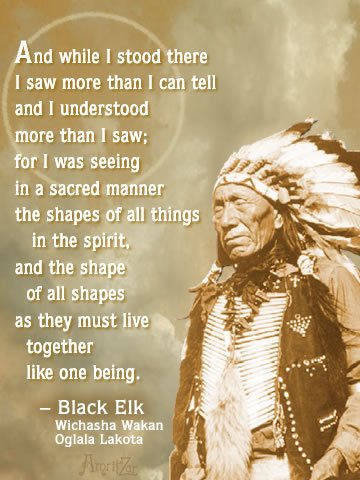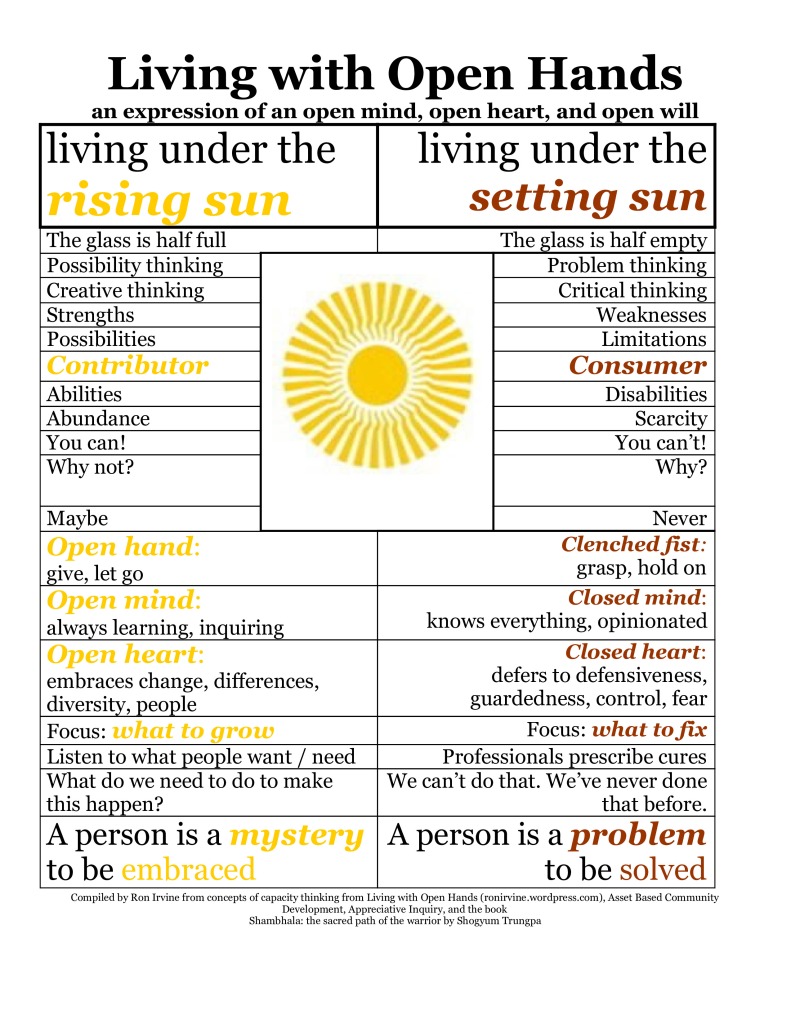Progressive & Open versus Regressive & Closed
Posted on November 1, 2020
The Process of Change and Growth begins with a
Progressive and Open
Mind (thinking, perspective, perception),
Heart (feelings, empathy, understanding), and
Will (daily living, outward expression, actions / interactions / reactions).

Are we nurturing an open and progressive
Mind, Heart, and Will,
or are we fostering a closed and regressive
Mind, Heart, and Will?
Are we intentionally developing thinking, feeling, and living that is like fresh water? If not, then by default we are becoming stagnant water, closed off from that which nourishes and gives life.
If we are not intentional about moving forward, then naturally we are sliding backward.
Are my “inward being” and “outward doing” reflections of Living with Open Hands?
“Life is growth. If we stop growing, technically and spiritually, we are as good as dead.” (Morihei Ueshiba, The Art of Peace)

The Human Heart
“Love can never be static.
A human heart is either
progressing or regressing.
If it is not becoming more open,
it is closing and withering spiritually.”
(Jean Vanier, Community and Growth)
This applies not only to individuals but also to all companies, communities, and countries. I believe the most effective strategies for change and growth are ones that apply to both the individual and the collective; afterall, isn’t the collective nothing more than a collection of individuals? Businesses and organizations must begin with having a clear sense of identity and purpose. This is why best practices for organizations begin with their clearly stated mission and vision. Then the quality management process continues to core values (inner being) and then has ways of measuring its visible, tangible culture along with its outcomes (outer doing). This is following the same concept of “inner / outer” where we as individuals strive for integrity by making sure that the “outward doing” is a reflection of our “inward being.” Whether individually or collectively, we must all strive for integrity because when we don’t, our hypocrisy is made clear and cannot be hidden. Even (or maybe “especially”) a child can sense a lack of genuineness, authenticity, and honesty. This is simply a matter of learning to be fully human.
Wholeness and integration; integrity, honesty, authenticity, and coherency requires that within each of us our inward being matches our outward doing.
The Voices of Disintegrity or Disintegration, those of Judgement, Cynicism, and Fear, are aiming to undermine our best potential:
The Voice of Judgement (VoJ) closes the mind off by judging new information and ideas. It’s trying to confirm the current worldview and mental models, maintaining the status quo. This is a very conservative voice that resists change, progress, and growth.
The Voice of Cynicism (VoC) closes the heart by being cynical about the outcome and intention of other humans. “Better only trust yourself.” “That’ll never work!” “You can’t do that.” This is also a very conservative voice that resists change, progress, and growth.
The Voice of Fear (VoF) closes the will by playing to your fears to stifle you, immobilizing and preventing you from change, growth, or moving forward. Again, this very conservative voice uses fear to stifle us from being fully human.
Our internal chatter comes from thought. Thought has a tendency to create a world of its own along with all of the troubles and barriers that come with it. Once the problems have been created with stories that thought tells us (all night long!), then thought goes to work trying to solve the problems that it has created. As the physicist, David Bohm said during his study of thought, language, and culture, “Thought creates the world and then says, ‘I didn’t do it.’” I picture thought standing there as a person with their hands up, laughingly saying, “You caught me. I surrender” as it continues with the same old tricks. I honestly think this is true. And I think that the reason thought constantly does this is twofold:
- Thought is trying to do its natural job of protecting us but it doesn’t realize that we are not in mortal danger. Rather our problems and resulting danger come mostly from the source of thought itself and the stories we tell ourselves rather than the external environment like in ancient times. After all, the thing thought is meant to do is to solve problems in order for us to survive.
- Because society has changed so much that most of our problems are not life-threatening and do no put us in any jeopardy related to our survival, then thought no longer has the constant task of our survival. Therefore, I think, thought gets bored and starts creating scenarios for us but is also quite unaware that thought itself is the source of its own constructs and problems because most of us are not aware of our own internal workings.
Try this: sit quietly and pay attention to your thoughts. Observe without judgment. And then notice each thought to see whether it is about the past, the present, or the future. What you’ll find is that almost all of our thinking is about the past and the future, the two things we can do nothing about. So it generates regrets about the past and worries about the future without having any ability to be useful in solving them. Generally, the main thing that can access this present moment is “awareness” or “attention” or “intention”. It is only here that we have any power. Our whole life is lived in each present moment.
This is why Einstein said that we cannot solve our problems with the same level of thinking with which we created them. It is also why Bohm said that in order to be more aware of what thought is doing, we must develop and nurture the ability of proprioception of thought. Just like with proprioception of the body, we need a sense of where we are in relation to our surroundings, along with being better at balance and coordination. So with thought, we must become aware of what thought is doing, the stories it has created and is telling us, when thought is productive or counter-productive, and mostly understanding the “source” of our thinking, i.e. our worldview and mental models.
In order to counter the chatter of the Voices of Judgment, Cynicism, and Fear, we must learn to sense our Source to see if we are coming from a place of an Open Mind, Open Heart, and Open Will.
We must learn to be aware of our “source” by sensing whether we are coming from a place of being Progressive & Open or Regressive & Closed (the latter of which is expressed by the three voices above of Judgement, Cynicism, and Fear). So rather than these nagging voices, we work to shift our source dimension to an Open Mind, Open Heart, and Open Will.
In order to see, understand, and nurture our Source dimension, there is significant and critical inner work that each person must do. This is essential. “So, today, I would summarize the source dimension … by differentiating between three inner places or three capacities that we need to cultivate as change makers, innovators, and leaders.”
Open Mind
(A Voice of Acceptance and Understanding
versus a Voice of Judgment)
“The first one is the open mind, by which I mean the capacity to suspend our old habits of judgment– basically, to see with fresh eyes.” Are we aware of our assumptions, biases, prejudices, and judgmental attitudes? Are we open to new ideas and perspectives? Are we open the values and beliefs of the “other?” Can we hold in tension two opposing ideas so that we can consider different perspectives?
Open Heart
(A Voice of Possibility and Potential
versus a Voice of Cynicism)
“The second one is the open heart, by which I mean the capacity to empathize to redirect our attention— to look at a problem not just from my angle, but also from the angle of the other stakeholders that are involved in the situation.” Can we stand and walk in the shoes of another person? Do we seek understanding rather than to be understood? Are our hearts open to the pain and suffering of others? Are we willing to be present with those that need us? Can we See others, life, and history with the Eyes of the Brokenhearted, oppressed, poor, downtrodden, disabled, sick, the “least of these?”
Open Will
(A Voice of Volition and Vocation: Willingness to heed the call to action,
Doing the Right Thing with Fearlessness versus A Voice of Fear)
“And number three, to cultivate the open will, which is essentially the capacity to let go and let come— let go of the old and let come of the emerging new possibilities.” (Otto Scharmer, Theory U) Are we willing to act on new ideas? Do we seek to live out our values and beliefs daily? When we know the right thing to do, do we have the courage to take action?
This is my vision for Living with Open Hands: an expression of an Open Mind, Open Heart, and an Open Will resulting in, for me, the opening of my eyes and ears. I have sensed a shift from seeing and hearing with my eyes and ears to a much deeper Seeing and Hearing with my Heart.
Sacred Eyes versus Cynical Eyes
“If we look with cynical eyes we see a truncated vision, bereft of hope. . . .It is with sacred eyes that we can see the larger, more realistic, picture. Sacred eyes can penetrate through the opaqueness of materialism and reductionism, and can sort through the chaos of our current time to see the emerging values of the 21st century.” (Robert Keck, Sacred Eyes)

“I am blind and do not see the things of this world; but when the light comes from above, it enlightens my heart and I can see, for the Eye of my heart sees everything; and through this vision I can help my people. The heart is a sanctuary at the center of which there is a little space, wherein the Great Spirit dwells, and this is the Eye. This is the Eye of the Great Spirit by which He sees all things, and through which we see Him. If the heart is not pure, the Great Spirit cannot be seen.” (Black Elk)
Making sense of your internal chatter using Theory U | by Tijmen Rümke
“Theory U is a process model for personal and organizational change. Among other things, it defines three Voices that hinder you when/from moving towards a higher but uncertain possible future. They are the Voice of Judgement (VoJ), Voice of Cynicism (VoC) and the Voice of Fear (VoF).” See the process in the first image.
And below is a comparison of what happens as we give up control to our Voices of Judgement, Cynicism, and Fear. Being Progressive and Open is shown in the process of “presencing” at the bottom of that chart in order to nurture change and development. The inverse, shown at the top, is what happens when we are shut down and closed up causing a stagnation of our creativity, innovation, and full potential.
This is the research on which I based my vision and fruition of Living with Open Hands. I had already envisioned the Open Mind and Heart. But this opened my eyes to the missing element, an Open Will, that represents our willingness to live out this process as both being and doing, both inward / outward, which is necessary for integrity.
The outward expression of the Open Will encompasses learning to See and Hear with the Open Eyes and Ears of the Heart.
For more on Theory U by Otto Scharmer, please check out
Theory U: leading from the future as it emerges by Otto Scharmer
Executive Overview (2 page version in English) Download
Executive Summary (21 page version in English) Download
Making sense of your internal chatter using Theory U | by Tijmen Rümke
https://ronirvine.wordpress.com/2019/02/05/blind-spot/
https://ronirvine.wordpress.com/2020/10/21/learning-to-see/
https://ronirvine.wordpress.com/2020/09/30/seeing-with-eyes-of-the-brokenhearted/
Our Source (quality of attention and intention) Will Determine our Perspectives and our Actions (quality of interventions).
As humans, we tend to create truth in our own image, and then proclaim it as if it is some profound answer to our greatest problems. We don’t realize that we are the source of our problems (status quo thinking from fear of change, a voice of cynicism undermining possibility thinking, and a voice of judgement full of bias, prejudice, and assumptions). A new perspective is needed. Awareness of our Source changes the way we See and therefore the way we do what we do.
”The best in art and life comes from a center – something urgent and powerful, an idea or emotion that insists on its being. From that insistence, a shape emerges and creates its structure out of passion. If you begin with a structure, you have to make up the passion, and that’s very hard to do.” (Roger Rosenblatt)
“The success of an intervention depends on the interior condition of the intervener.”
Our Source is so often our Blind Spot. Too often we are not aware of our “inward being” and how it determines our “outward doing.”
We must learn by Seeing with new eyes.
We must unlearn by Seeing with new eyes.
We must relearn by Seeing with new eyes.
“Enlightenment is a destructive process. It has nothing to do with becoming better or being happier. Enlightenment is the crumbling away of untruth. It’s seeing through the facade of pretense. It’s the complete eradication of everything we imagined to be true.” (Adyashanti)
Progressive & Open — the way of nature, all of creation
Individually, we cannot be healthy if we are not progressive and open, if we do not grow, mature, and become better. As humans, this is an imperative if we are to stay relevant in this world. Nature is our example. That which does not grow and flourish decays and becomes stagnant and useless, and therefore is eliminated. Clinging to that which is past and gone will not solve anything in the present.
“Nature will not let us stay in any one place too long. She will let us stay just long enough to gather the experience necessary to the unfolding and advancing of the soul. This is a wise provision, for should we stay here too long, we would become too set, too rigid, too inflexible. Nature demands the change in order that we should advance. When the change comes, we should welcome it with a smile on the lips and a song in the heart.” (Ernest Holmes)
“What does it mean to be healthy in an unhealthy system?” (Nora Bateson, Small Arcs of Larger Circles)
Progressive & Open — the way of compassion, of being human
Are our relationships with people and with things full of dependency, neediness, identity, and control; or characterized by the freedom of unclenching our fist and letting go?
“The beginning of love is to let those we love be perfectly themselves, and not to twist them to fit our own image. Otherwise we love only the reflection of ourselves we find in them.” (Thomas Merton, 1915-68)
“Every single one of us has it within us to be patient, kind, and compassionate. And each one of us forgets this. A central task in life is to remember.” (John Campbell)
“Compassion asks us to go where it hurts, to enter into places of pain, to share in brokenness, fear, confusion, and anguish. Compassion challenges us to cry out with those in misery, to mourn with those who are lonely, to weep with those in tears. Compassion requires us to be weak with the weak, vulnerable with the vulnerable, and powerless with the powerless. Compassion means full immersion in the condition of being human.” (Henri J.M. Nouwen)
“Compassion is not a relationship between the healer and the wounded. It’s a relationship between equals. Only when we know our own darkness well can we be present with the darkness of others. Compassion becomes real when we recognize our shared humanity.” (Pema Chödrön)
“But it does feel as if the world’s reset button has been pushed, as if we’re defragging society’s hard drive. Once we boot up again, we might find ourselves in a better place.” (Tobias Jones)
Regressive & Closed — the way of fear, judgement, and cynicism
There are two ways before us: life or death, fearlessness or fear, love or indifference, hate or understanding. If we do not choose life then death will choose us. The only thing worse than dying is to die before we die; living while dead.
Are our relationships with people and with things full of dependency, neediness, identity, and control, characterized by clenching our fists, always clinging, grasping, wanting, and desiring?
“Our disasters come from letting nothing live for itself, from the longing we have to pull everything, even friends, into ourselves, and let nothing alone.” (Robert Bly)
“An evolving system cannot return to the past.”
(Barbara Marx Hubbard)
“We can no longer fail to notice those we have previously overlooked. The homeless – for whom the instruction to ‘stay home’ means nothing – are thrown into sharp relief on our deserted streets. We suddenly see that those who are still working in public, risking their own health – the cashiers, couriers and nurses – are those paid a pittance and often with no contractual commitments from their employers. Never has it been so apparent that our society is built on exploitation.” (Tobias Jones)
“Fundamentalism is authoritarian by definition–it accepts a vision of ‘the Truth’ that is sacrosanct, unquestionable, and, when found to be incompatible with reality, protected through the generation of ‘alternative facts,’ which themselves become unassailable truths within the enclave community that is built up to sustain the fundamentalism in question.” (Christopher Stroop)
See or Perish
“One could say that the whole of life lies in seeing — if not ultimately, at least essentially. To be more is to be more united — and this sums up and is the very conclusion of the work to follow. But unity grows, and we will affirm this again, only if it is supported by an increase of consciousness, of vision. That is probably why the history of the living world can be reduced to the elaboration of ever more perfect eyes at the heart of a cosmos where it is always possible to discern more. Are not the perfection of an animal and the supremacy of the thinking being measured by the penetration and power of synthesis of their glance? To try to see more and to see better is not, therefore, just a fantasy, curiosity, or a luxury. See or perish. This is the situation imposed on every element of the universe by the mysterious gift of existence. And thus, to a higher degree, this is the human condition.” (Pierre Teilhard de Chardin)
For more information:
Why do we resist creating a better world? by Jim Lockhard
Unclenching the Fists in Living with Open Hands
Letting Go in Living with Open Hands

empowerment or domination, abundance or scarcity, possibilities or limitations,
contribution or consumption.
Liberal vs. Conservative: A Neuroscientific Analysis with Gail Saltz / Big Think

No comments:
Post a Comment